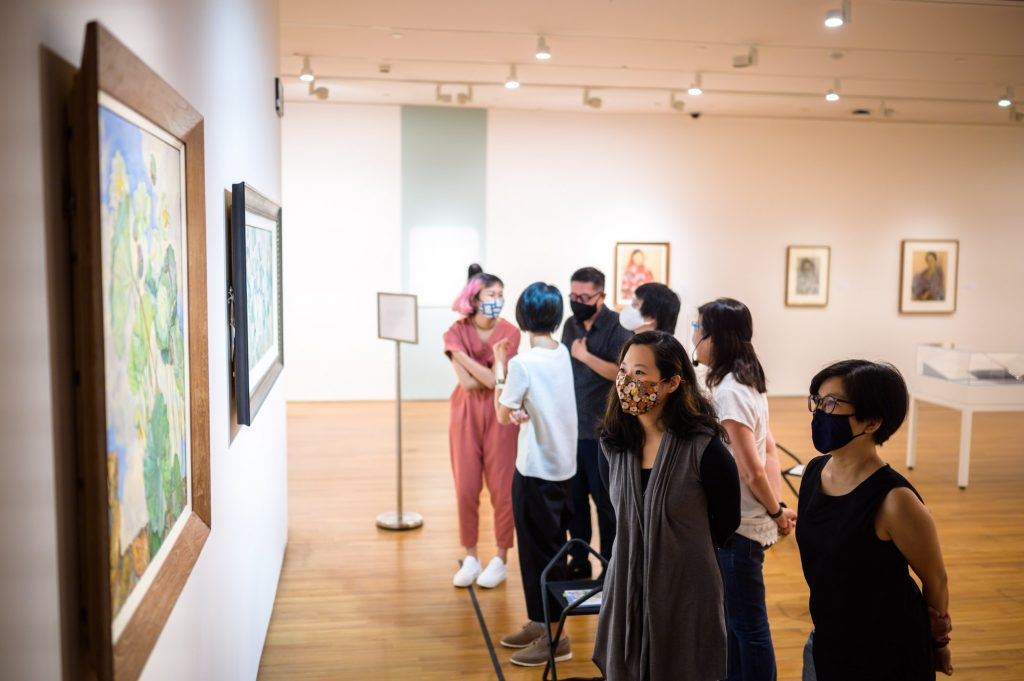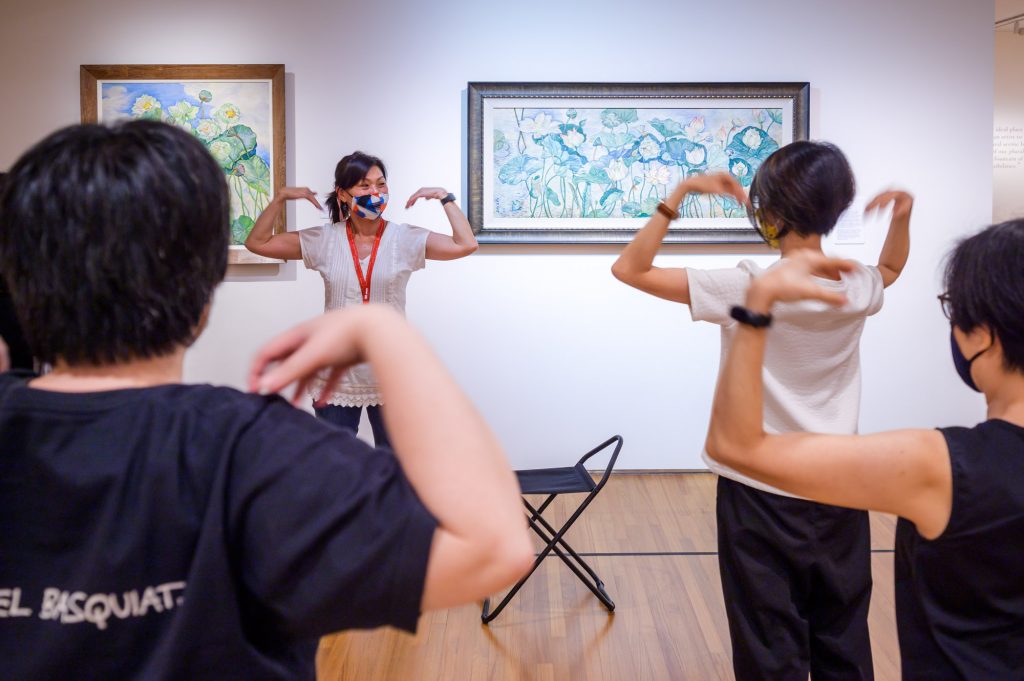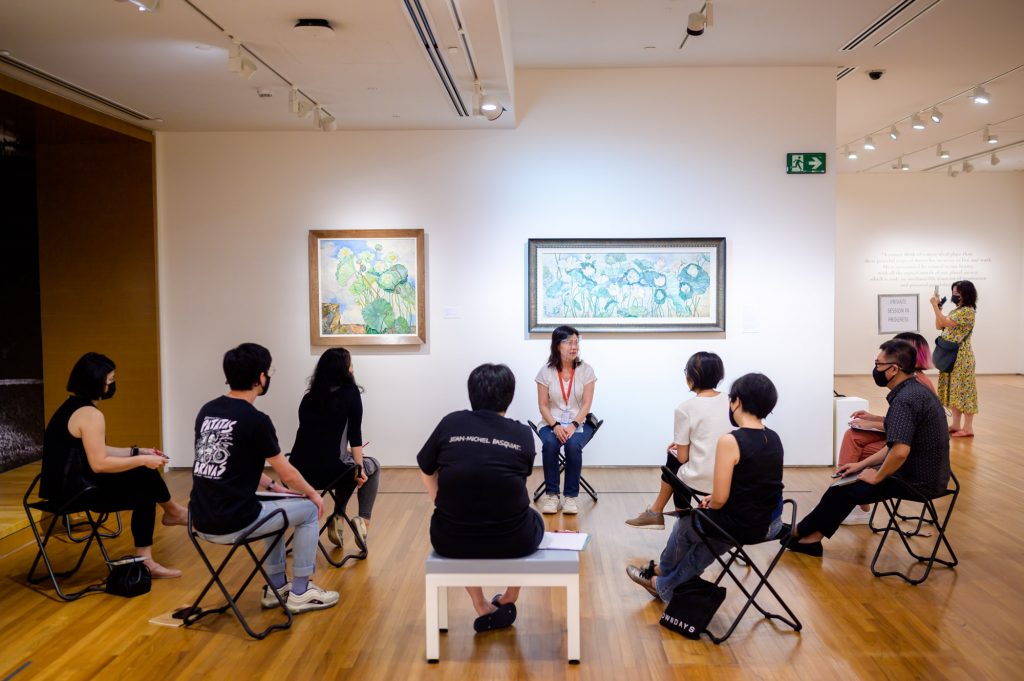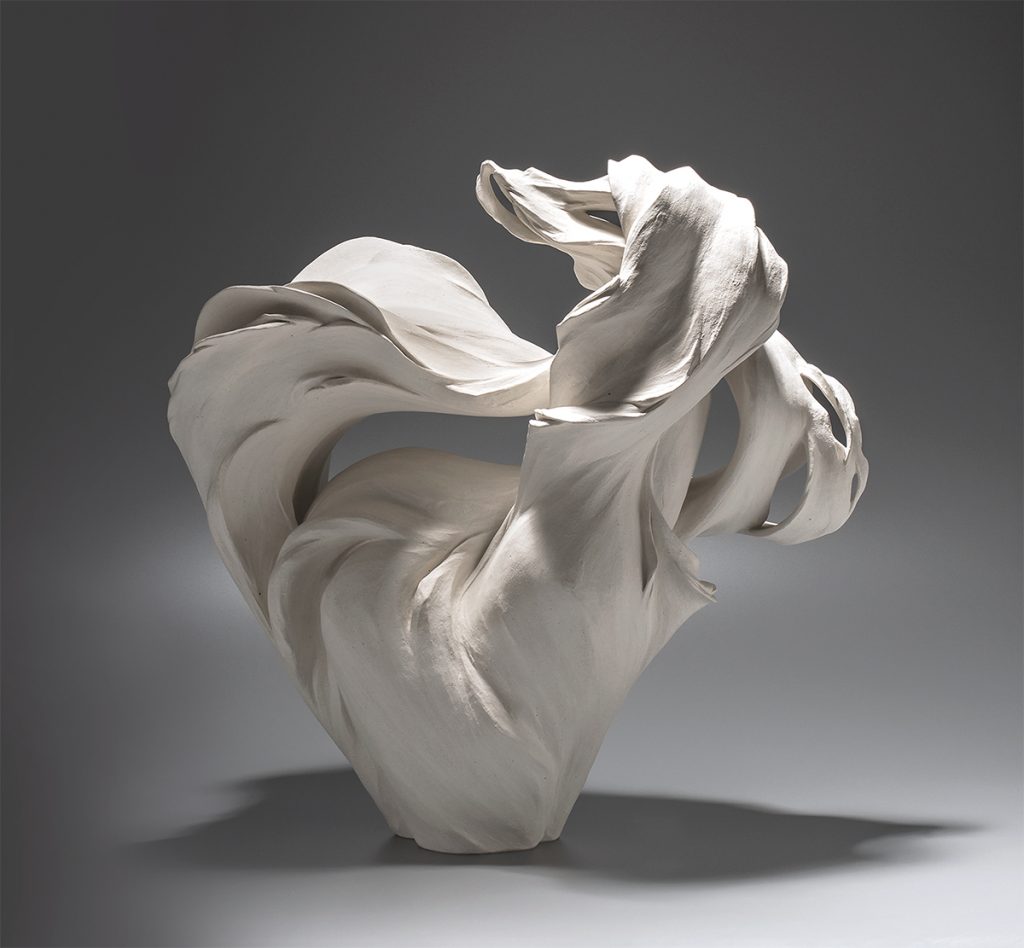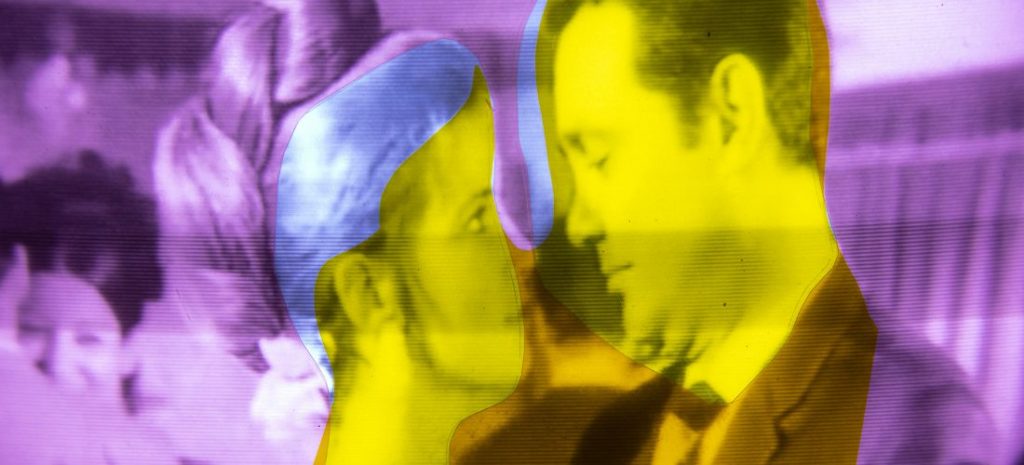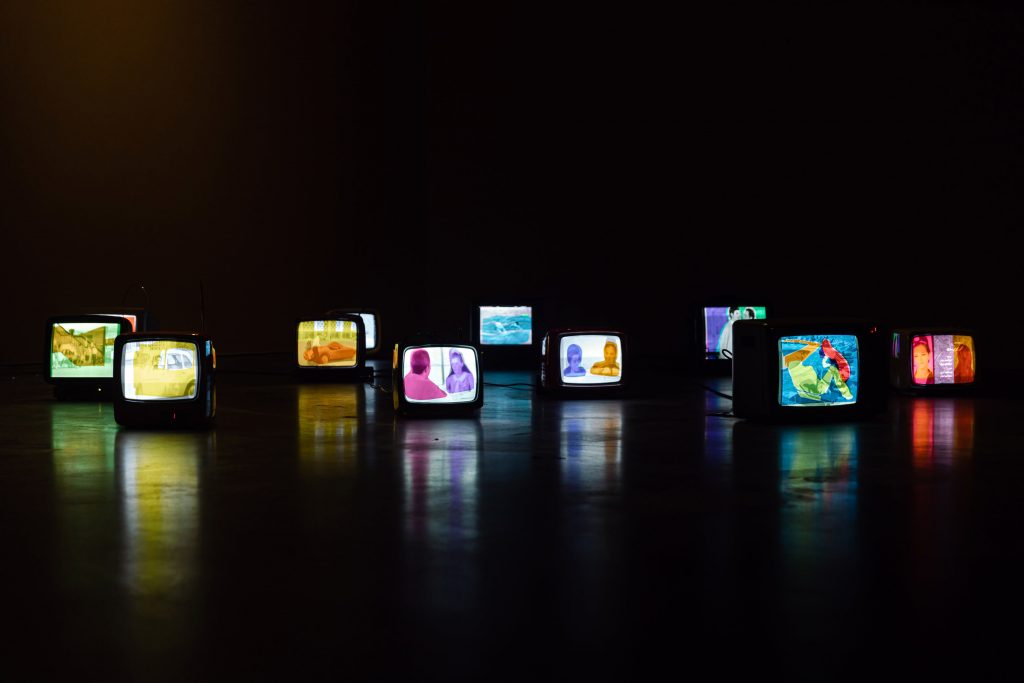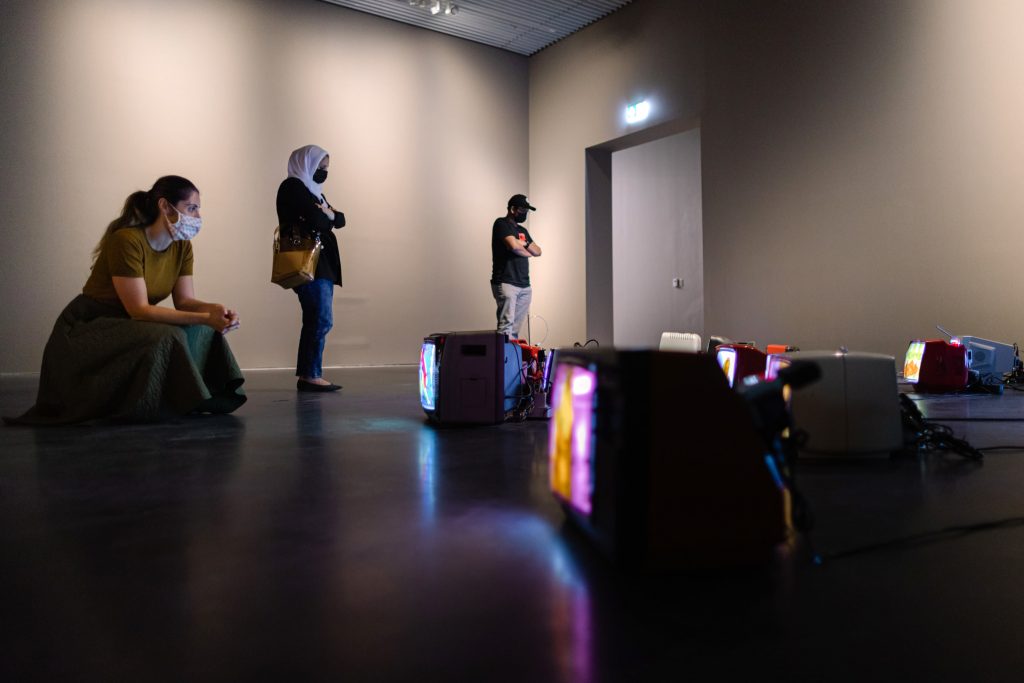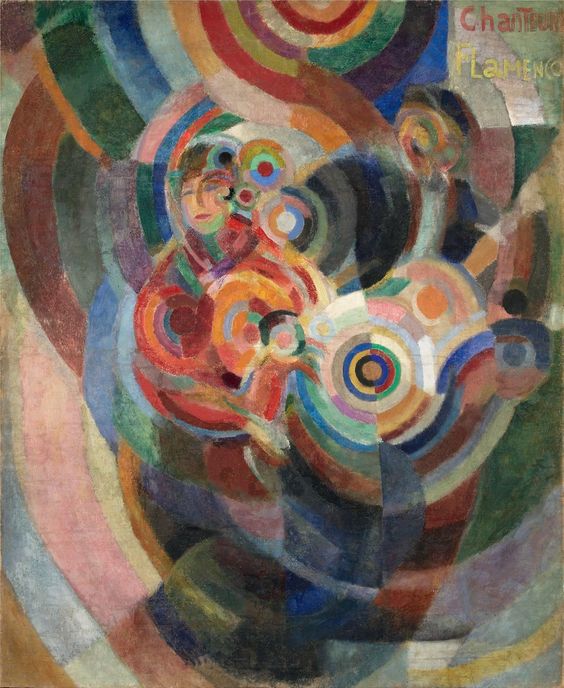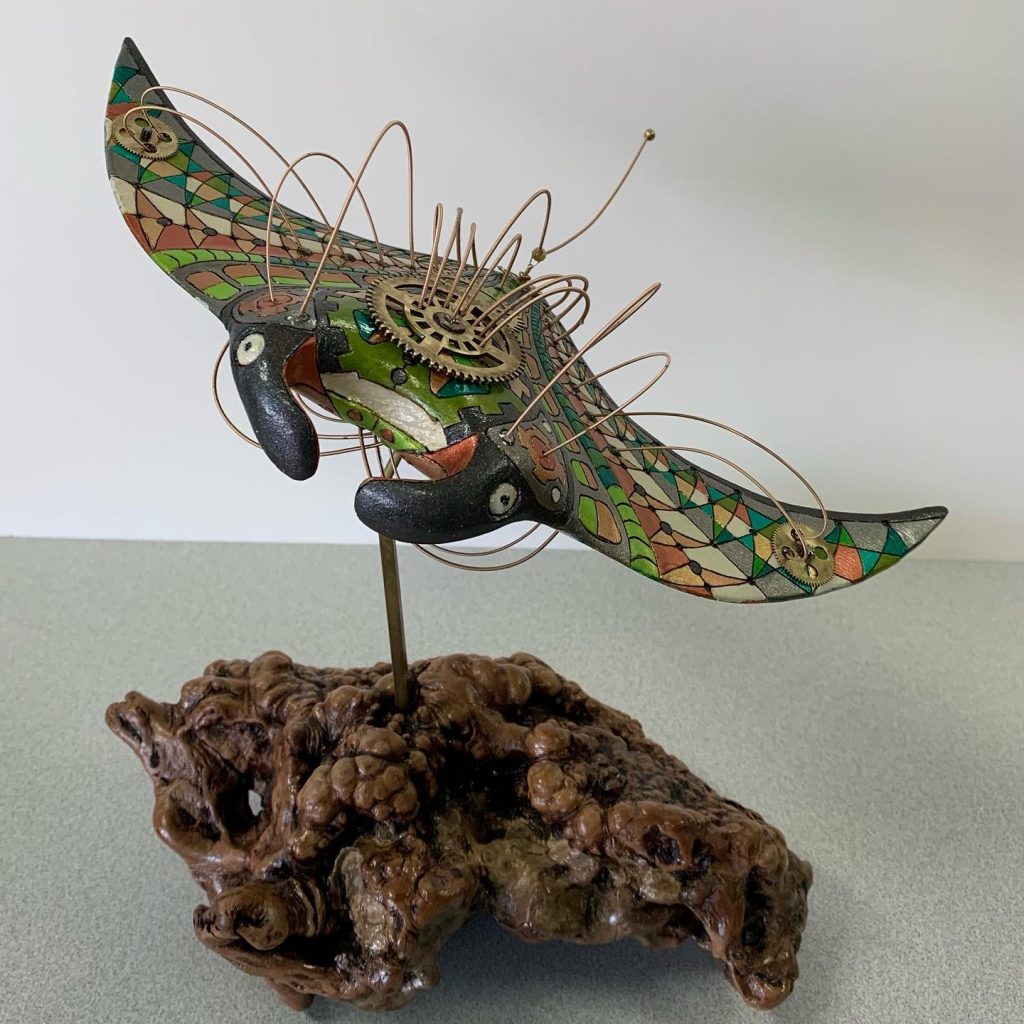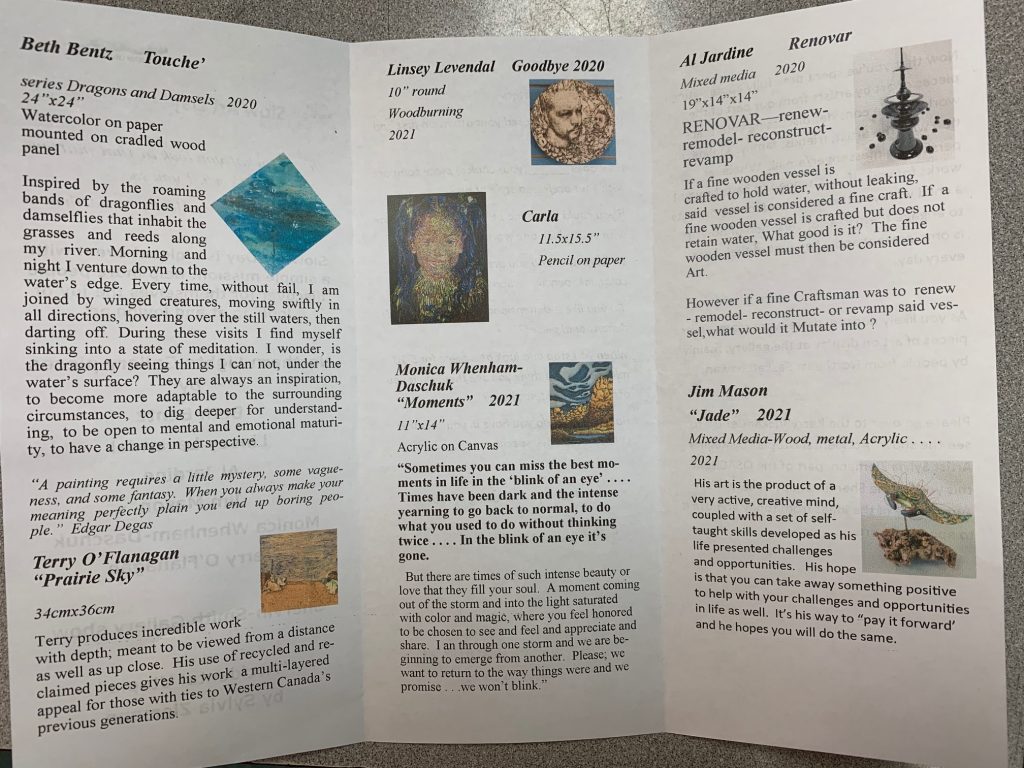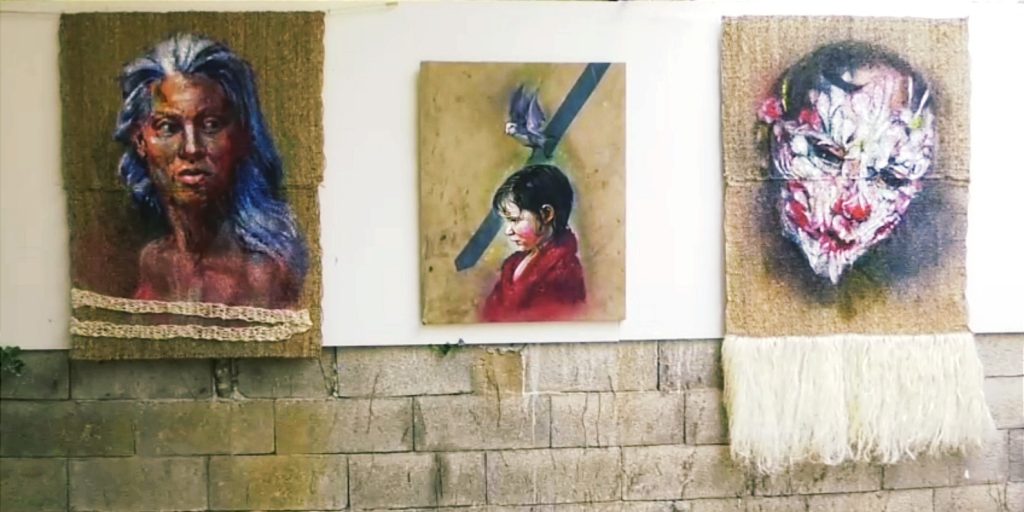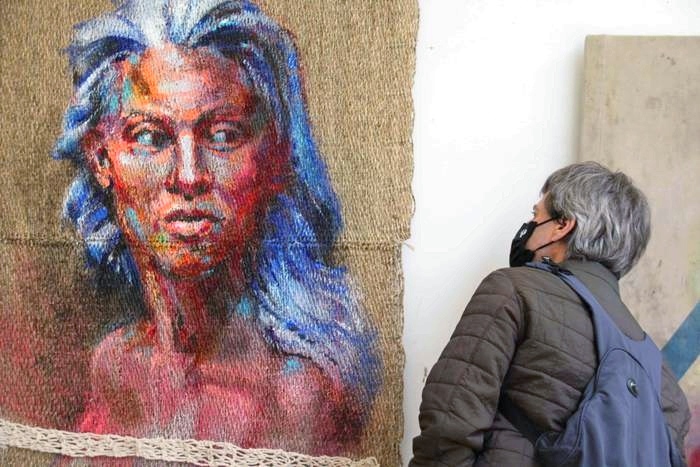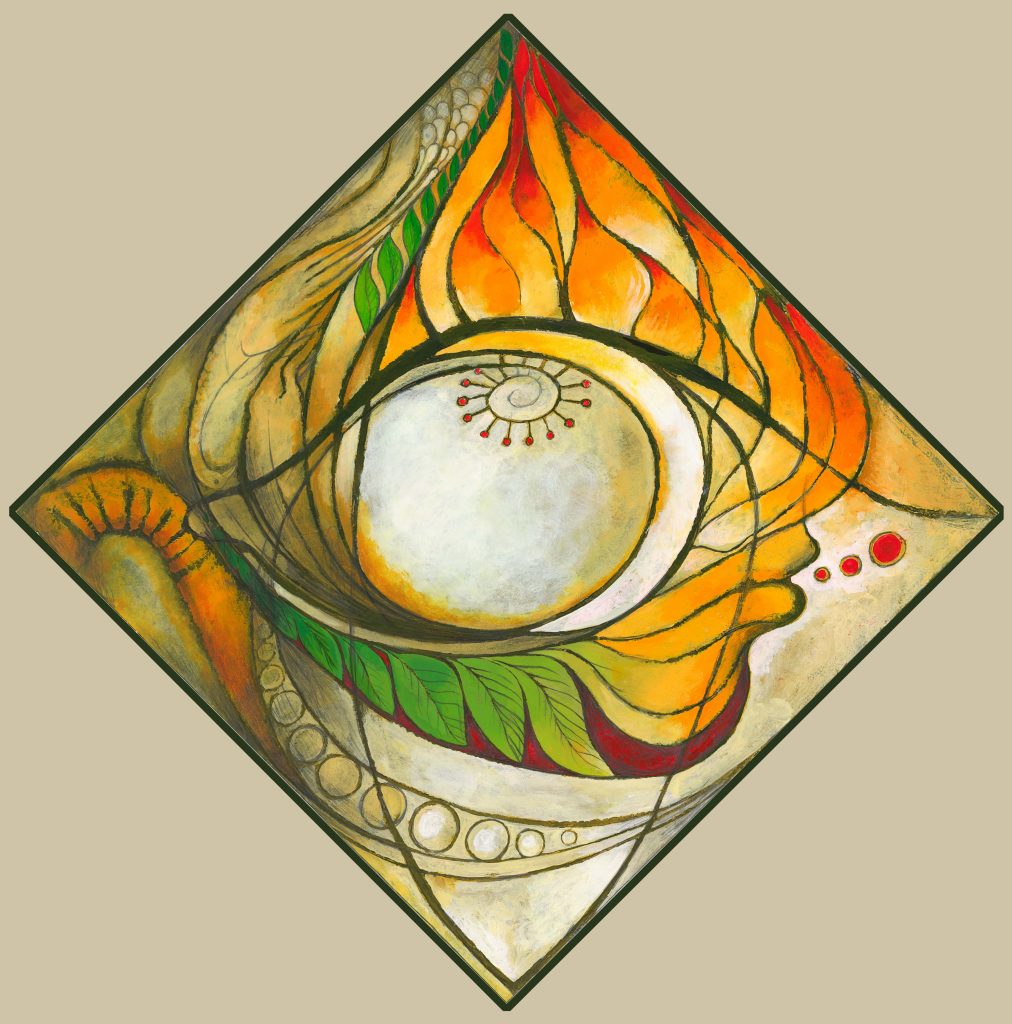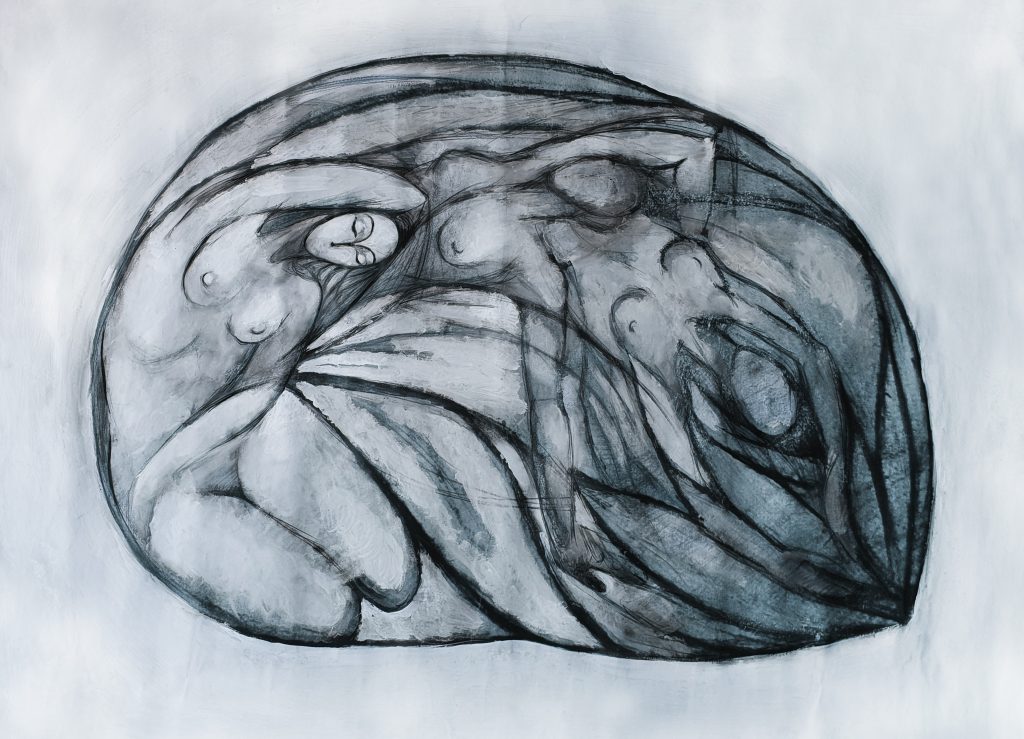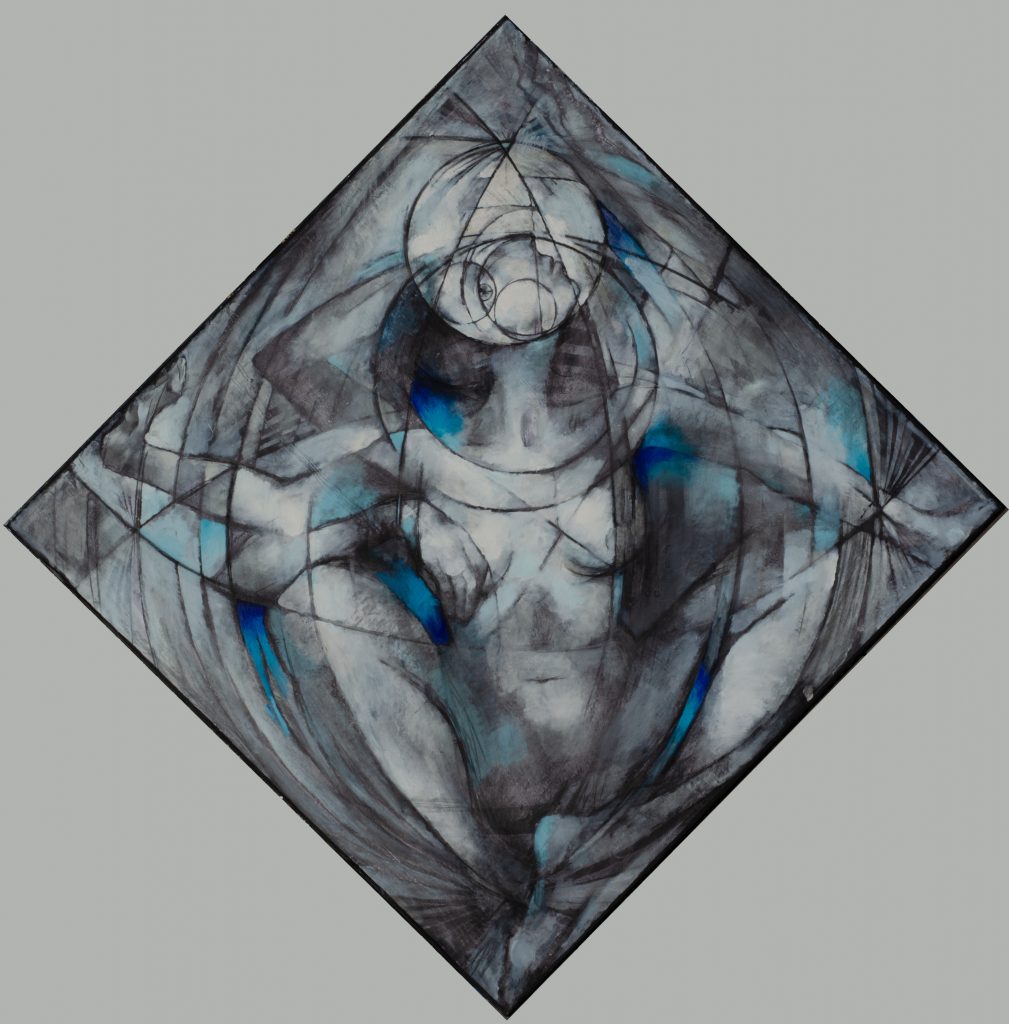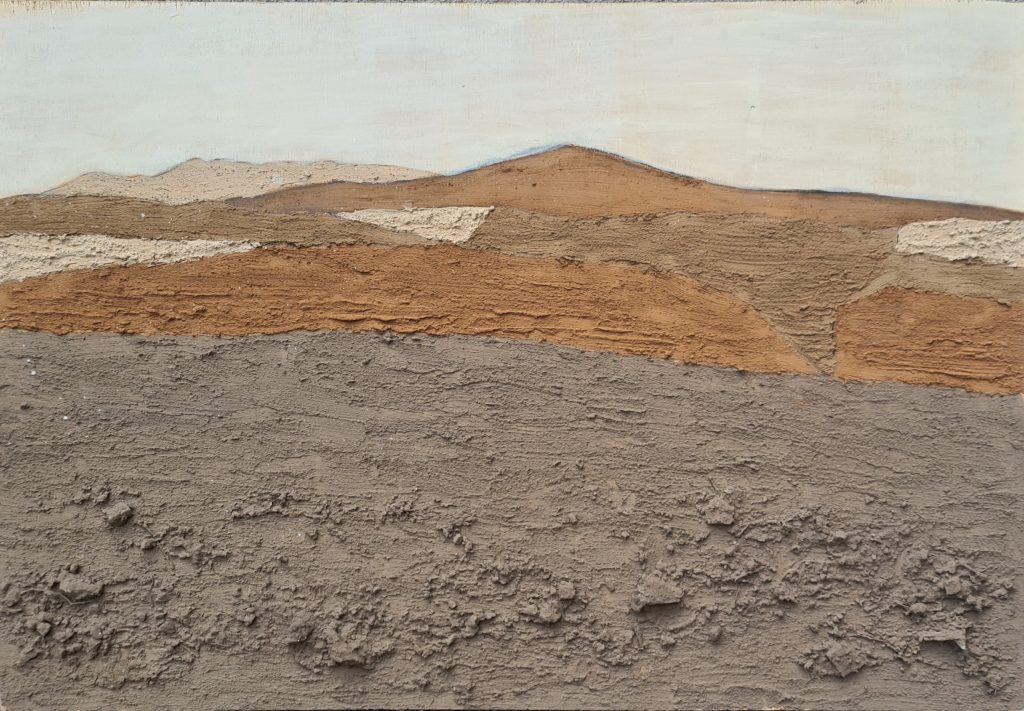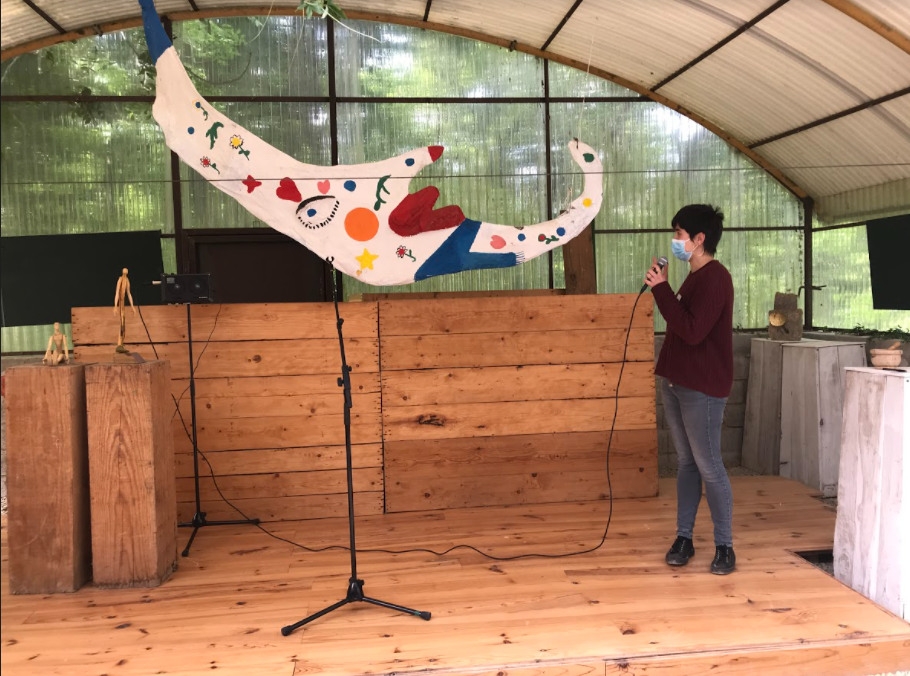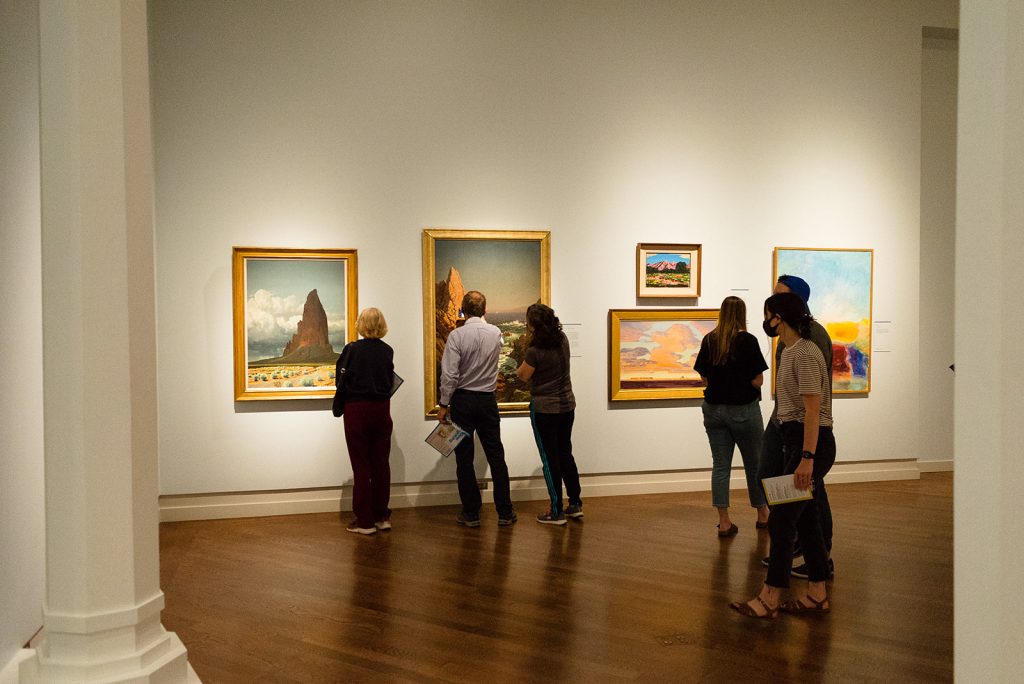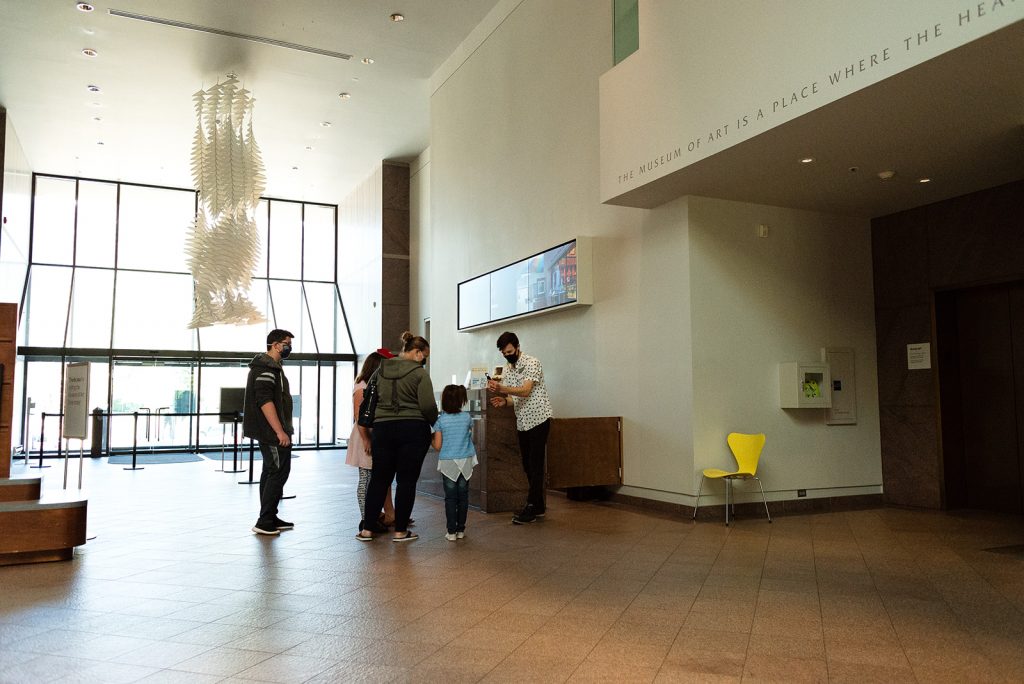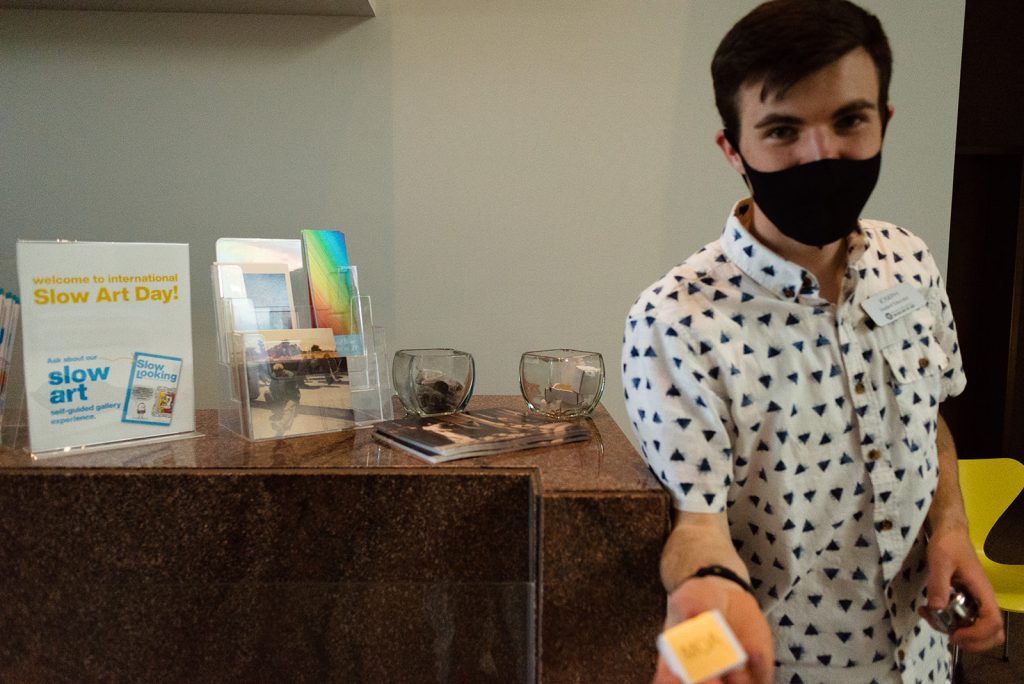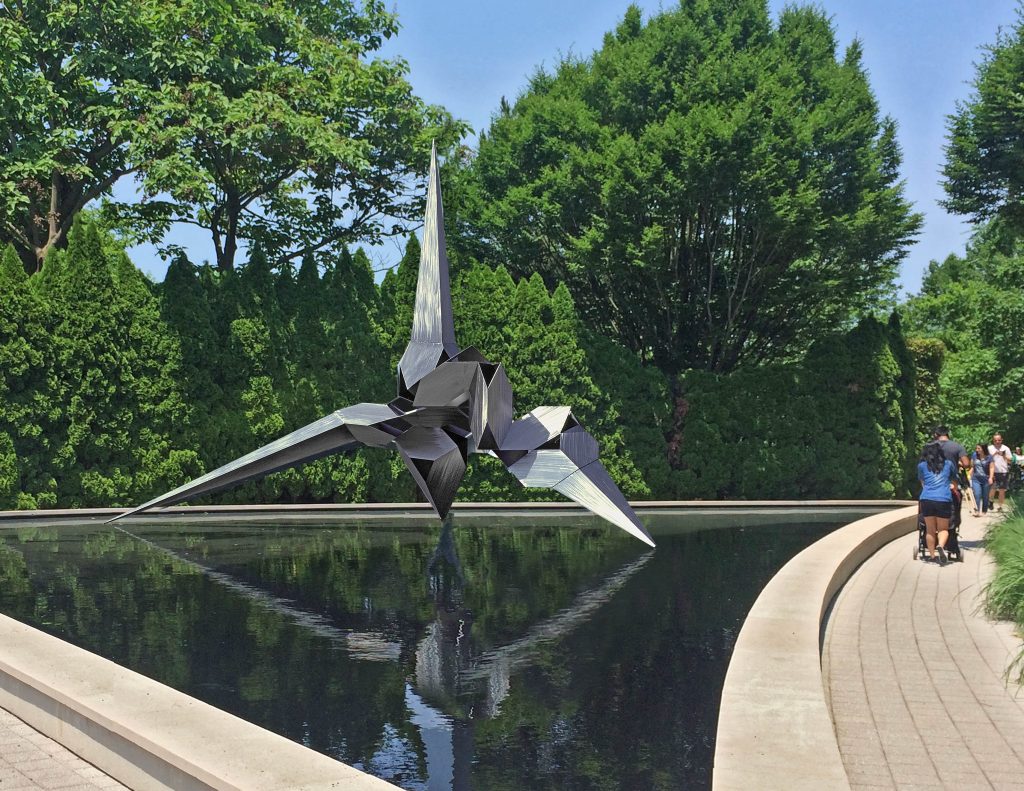For their first Slow Art Day, the National Gallery Singapore, in Singapore, invited participants to join one of two events hosted by the Gallery:
Slow Art Online: a virtual 60-minute slow-looking program
Slow Art Plus: an in-person 90-minute slow-looking and mindfulness program
The Slow Art Online virtual program featured slow-looking exercises followed by discussions, facilitated by the Gallery’s docents. Started during the pandemic, this program has become so popular that it is now a regular part of the Gallery’s calendar throughout the year. For details about future sessions, reach out to community@nationalgallery.sg.
For the Slow Art Plus in-person event, visitors participated in mindfulness exercises and were invited to look slowly at a selection of artworks, including Georgette Chen’s Lotus In A Breeze (1970).
Dr. Mabel Yap, a trained mindfulness practitioner, guided participants through mindfulness exercises that she designed to engage the senses. This was followed by a group discussion about the intersection between visual art and emotional wellness in modern Southeast Asian art. The way the mindfulness exercises slowed down the participants and helped them connect to the art explains why this approach has deservedly become a big part of Slow Art Day events around the world.
Interested participants snapped up free tickets to both programs rapidly, and people both new and familiar with the Gallery had positive feedback.
“I didn’t realise how much we can observe and gain from art by being mindful. I liked that the various exercises helped to guide us and provided variety.”
Participant’s quote
“(I really enjoyed) viewing the art piece at length and noticing more details… and hearing others’ perspectives how the paintings were relevant to their experience.”
Participant’s quote
“Fusing the concepts of mindfulness and art! Wonderful exercises with the facilitator. Very interactive.”
Participant’s quote
“(I really enjoyed) how I’m stretched to think and look at the art piece in ways I wouldn’t have otherwise.”
Participant’s quote
At Slow Art Day HQ, we love that the National Gallery Singapore has decided to produce ongoing virtual sessions. Our mission from day one has been to use the annual event as a way to inspire regular slow looking activities throughout the year.
We were also glad to see yet another museum integrate mindfulness into their Slow Art Day.
We look forward to what the National Gallery Singapore come up with next year.
Johanna, Jessica, Ashley, and Phyl.
P.S. You can check out the Facebook and Instagram page of National Gallery Singapore for more information about upcoming events.

